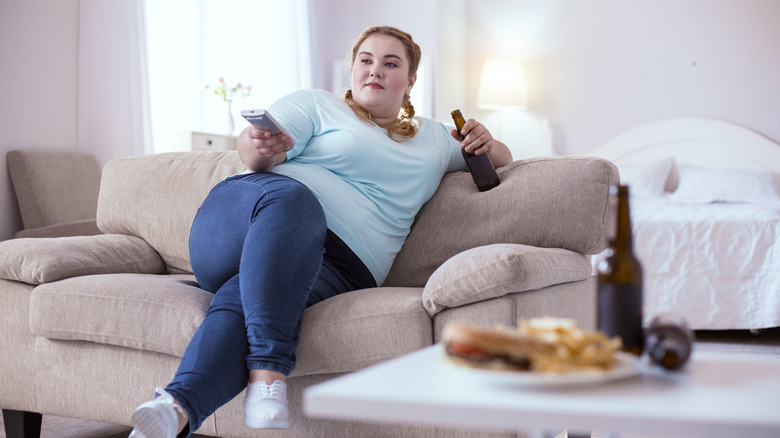You’ve probably heard that beer can make you gain weight, but is it true?
The answer depends on several factors, including your overall diet andhow much you drink.
Any alcoholic beverage has the potential to cause weight gain.

Beer is no exception.
First of all, it provides empty calories.
These numbers can add up quickly, especially if you’rebinge drinking.

What you may not know is that beer also increases appetite, which can lead to overeating.
The same goes for all alcoholic beverages, per a 2010 review published inPsychology and Behavior.
As the researchers note, drinking before or with meals can make food more palatable.

But is beer worse than other drinks?
Read on to find out thetruth about that beer belly.
Simply put, alcohol is the first fuel to burn.
As a result, it will take you longer to torch the extra calories from beer and food.
Beer is also higher in carbs than other beverages, such as wine and spirits (viaMyFoodData).
After ingestion, carbs are converted to glucose and used for energy.
Some are stored as glycogen in the liver and muscles.
What this means is that beer can make you gain weight by affecting your body’s ability toburn fat.
Plus, it stimulates appetite and may increase your food intake.
Another drawback is that some types of beer contain added sugar, which can significantly boost the calorie count.
Most cocktails contain citrus-flavored sodas and other mixers high in sugar.
If you have a belly, it’s likely due to your overall diet.
Low-alcohol and non-alcoholic beers are low in calories, too.
Either kind of brew is a better choice than regular beer, cocktails, or hard liquors.
If you or anyone you know is struggling with addiction issues, help is available.
Visit theSubstance Abuse and Mental Health Services Administration websiteor contact SAMHSA’s National Helpline at 1-800-662-HELP (4357).